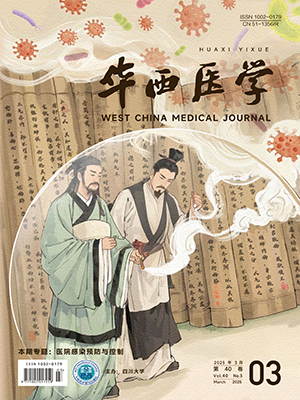| 1. |
范先群. 眼整形外科学[M]. 北京:北京科学技术出版社, 2009:143.
|
| 2. |
魏培翰, 何雪莹, 李丽娟. 美容整形手术治疗老年性下睑松弛效果分析[J]. 中外女性健康研究, 2015(10):56-56, 37.
|
| 3. |
马凤娟, 孙英. 眼轮匝肌处理在退行性下睑内翻矫正术中的应用[J]. 临床眼科杂志, 2013, 21(1):69-71.
|
| 4. |
董晓丽. 老年性下睑内翻的手术治疗体会[J]. 中国卫生标准管理, 2015(5):121-122, 123.
|
| 5. |
刘晓红, 李万鹏, 林智勇. 老年性下睑内翻矫正联合下眼袋修复术疗效观察[J]. 中国实用眼科杂志, 2015, 33(5):552-553.
|
| 6. |
姚为京, 黄新英. 老年性睑内翻改良矫正术[J]. 眼外伤职业眼病杂志, 2002, 24(1):103-104.
|
| 7. |
谢立信. 眼科手术学-理论与实践[M]. 北京:人民卫生出版社, 2004:399.
|
| 8. |
徐乃江, 朱惠敏, 杨丽, 等. 眼整形美容手术[M]. 上海:上海科技教育出版社, 2007:106.
|
| 9. |
Robert C, Rocca D, Edward H, et al. 眼整形外科手术设计与技术[M]. 李冬梅, 译. 北京:人民卫生出版社, 2003:38-40.
|
| 10. |
Damasceno RW, Osaki MH, Dantas PE, et al. Involutional entropion and ectropion of the lower eyelid:prevalence and associated risk factors in the elderly population[J]. Ophthal Plast Reconstr Surg, 2011, 27(5):317-320.
|
| 11. |
徐峰, 周斌, 金小琴. 老年性上睑皮肤松弛伴睑内翻倒睫的手术治疗[J]. 中国美容医学, 2009, 18(9):1261-1262.
|
| 12. |
何晓璐, 张姬慧, 林泰南. 外侧睑板条悬吊联合下睑缩肌前徙术治疗老年性睑内翻[J]. 国际眼科杂志, 2011, 11(6):1099-1100.
|
| 13. |
罗丽华, 王康, 王伟. 两种手术方法治疗老年性下睑内翻临床对比观察[J]. 中国美容医学, 2013, 22(5):532-534.
|
| 14. |
于建康, 魏萍. 眼轮匝肌缩短联合皮肤切除矫治老年性下睑内翻[J]. 中国美容医学, 2010, 19(12):1788-1789.
|
| 15. |
Eliasoph I. Current techniques of entropion and ectropion correction[J]. Otolaryngol Clin North Am, 2005, 38(5):903-919.
|
| 16. |
杨荣荣, 郝雪梅. 老年性下睑内翻行眼轮匝肌缩短及部分皮肤切除的临床效果分析[J]. 医学美学美容:中旬刊, 2015(3):224.
|
| 17. |
许文彬, 徐黎, 候开书. 两种术式治疗老年性下睑内翻临床疗效对比分析[J]. 右江民族医学院学报, 2015(3):443-444, 459.
|
| 18. |
代艳. 改良式老年性下睑内翻矫正术的疗效观察[J]. 国际眼科杂志, 2014(7):1354-1355.
|




